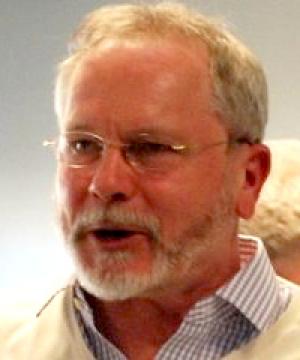
Date/Time: July 30, 2018, 11:05-11:35 a.m.
Location: Building 4500N, Weinberg Auditorium
Abstract:
The GNU Compiler Collection (GCC -- which includes among others Fortran, C, and C++ frontends) is probably the most retargeted compiler in existence, covering targets as venerable as the Vax and as avant-garde as the RISC-V. Included in its wide range of supported targets are parallel heterogeneous architectures, and specifically GPUs. OpenACC is the lingua franca for exploiting GPUs, and the GNU Collection currently supports version 2.5 of the OpenACC spec.
Because OpenACC support in GCC is a relative newcomer on the compiler evolutionary scale, it is evolving quickly and often leaves potential users confused as to its current status. This talk overviews the current status and future plans for OpenACC in GCC. Included in the presentation are a description of the current status of the GCC OpenACC implementation, the strengths and weaknesses of the implementation as well as a programming guide for negotiating among those strengths and weaknesses, a comparison of the implementation to PGI, and plans for future development.
Bio:
Dr. Allen has spent his career (and life, for that matter) optimizing things, most often by figuring out how to do things in parallel. He is the author or co-author of many commercial advanced optimizing compilers as well as the book “Optimizing Compilers for Modern Architectures”. His optimization efforts have spanned both software and hardware: he was the founder of Catalytic, Inc., a company focused on highly optimized compilation of Matlab for DSPs and was Vice President of Performance Engineering at Chronologic Simulation, the company that developed VCS. He is currently Director of Advanced Research at Mentor Graphics, a responsibility which includes management of the Code Sourcery group. Dr. Allen earned his A.B. summa cum laude in Chemistry from Harvard University and his Ph.D. in Mathematical Sciences from Rice University.
Host: Oscar Hernandez, Computer Science Research Group, Computer Science and Mathematics, oscar@ornl.gov, 241-9524
See more about this talk.Last Updated: May 28, 2020 - 4:06 pm